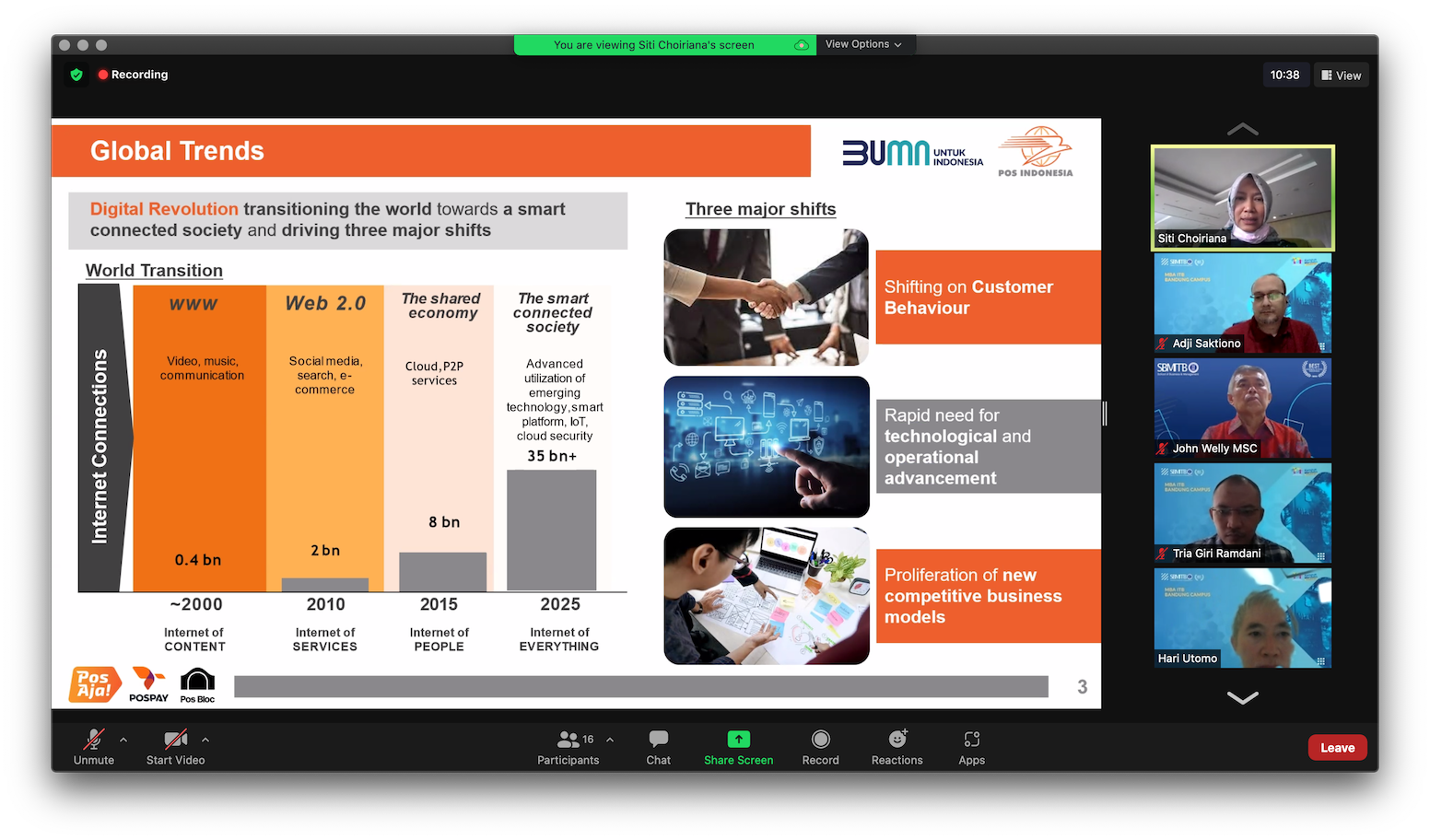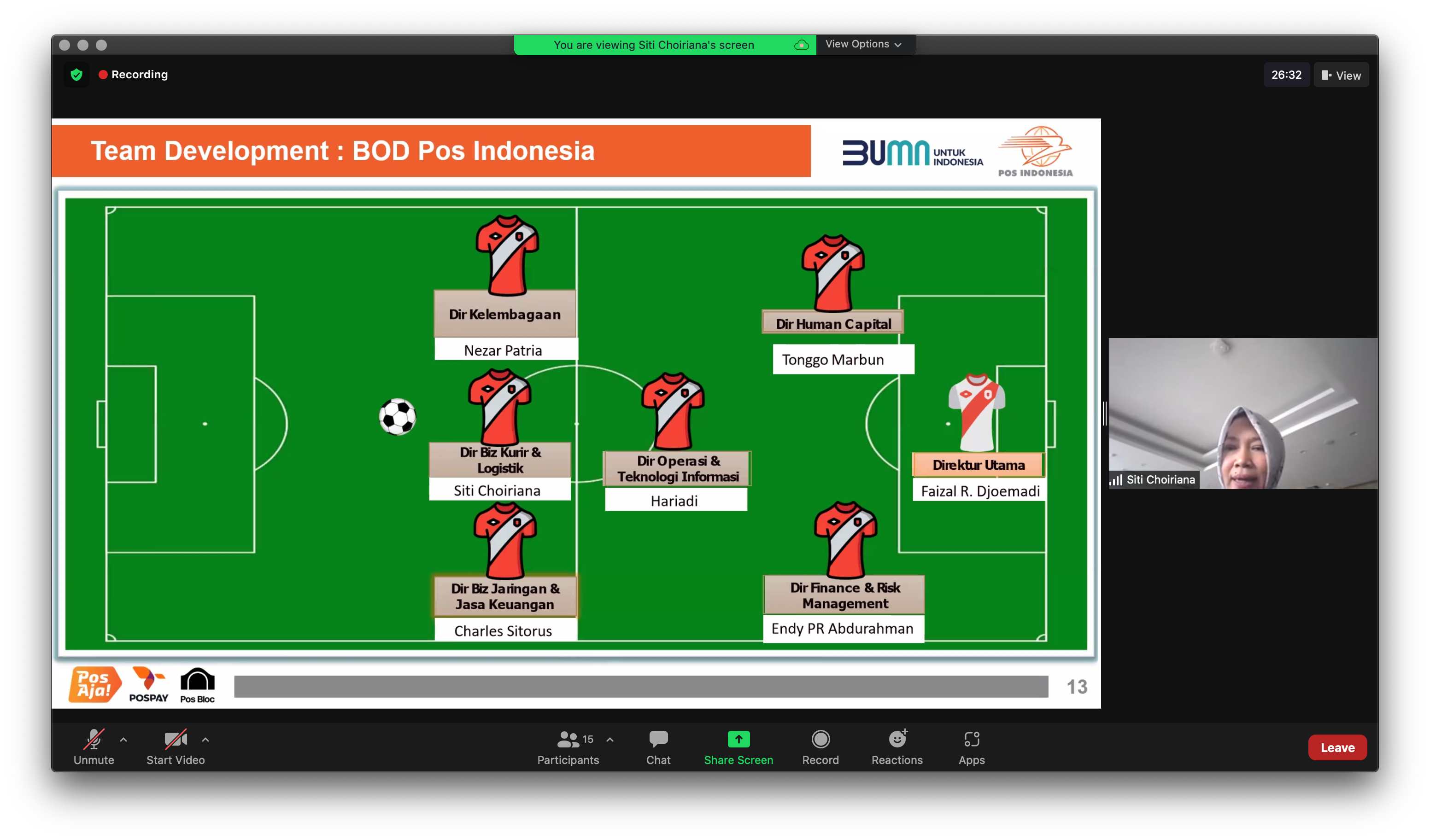Disruptions caused by technological developments lead to continuous changes, including in an organization. To discuss how to deal with and lead in these changes, SBM ITB invited the Director of Courier & Logistics Business from PT Pos Indonesia (Persero), Siti Choiriana, to share organizational changes in the context of SOE in a Guest Lecture session.
 “The current development is exceptional, resulted in a 4.0 challenge which forced us (PT Pos Indonesia Persero) to improve, especially in technology. We had to consider many major shifts because customers are very different, technology is extraordinary, and operations are advanced, so we must also create a new competitive business model. You can not compete using the old method; it can even make you perish,” said Siti.
“The current development is exceptional, resulted in a 4.0 challenge which forced us (PT Pos Indonesia Persero) to improve, especially in technology. We had to consider many major shifts because customers are very different, technology is extraordinary, and operations are advanced, so we must also create a new competitive business model. You can not compete using the old method; it can even make you perish,” said Siti.
According to Siti, SOEs are facing four main challenges in this digital transformation era, which are how SOEs can create digital talents, respond to OPEX, which is more impactful than COPEX, find ways to build a good digital business in conditions of uncertain income growth, as well as build agility in the organization and leadership.
There are seven ways that Pos Indonesia does to transform: First, Business Transformation, changing the mindset from loser to winner with KPI increasing market share; Second, Product and Channel Transformation, changing the pattern from physical to digital by releasing the PosAja and PosPay services; Third, Process Transformation with process automation and information transparency through a digitization system; Fourth, Tech Transformation, replacing carbon receipts for shipping labels with QR codes integrated with the track and trace feature; Fifth, HR Transformation, transforming talent from resources into capital; Sixth, Organization Transformation and finally, Culture Transformation by making ACHI-AKHLAK values characters.
“People only know Pos Indonesia as a courier, so they only talk about sending letters, money orders, or love letters. We have transformed our business; now, our portfolio includes couriers, logistics, warehouses, financial services such as PosPay, ancillary, and even property. We ensure that all offices are monetized properly through PosBloc, an area designed for MSMEs and young people to hang out,” said Siti.
In addition, Siti also explained management at Pos Indonesia, which was modeled in a football game strategy. “We run a total football strategy in running the business. The primary director is the goalkeeper to ensure that upstream to downstream runs well, and all functions are carried out so that as a team we are extraordinary,” said Siti.
With a market size of IDR 3,200 trillion, the courier and logistics service industry is growing rapidly. As an incumbent, Siti said that Pos Indonesia focuses on reclaiming market share by innovations and ensuring business fit with the industry.
“Our market share is currently 3%, insignificant, at the very bottom. We are expected to be able to run fast to increase market share. In this competition, the fast one can win over the slow ones, as well as the big ones. We hope that Pos Indonesia will be both fast and big to control the market share. We want to optimally contribute to the country and become a state-owned enterprise that makes Indonesia proud,” Siti concluded.





